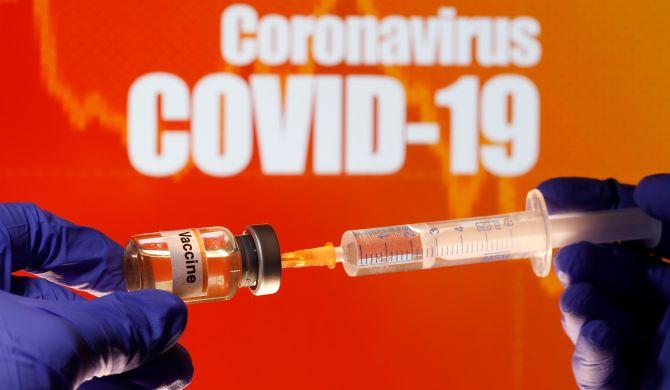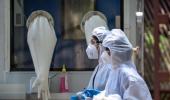'The challenge will be making sure its efficacy is high.'
'If a vaccine is only 50 to 60 per cent efficient, it's a double-edged sword.'

Adar Poonawalla, chief executive officer, Serum Institute of India -- the world's largest manufacturer of vaccines by volume -- has said his biotechnology firm, in partnership with an Oxford University-led consortium, will roll out a coronavirus disease vaccine before the end of this year.
Poonawalla tells Pavan Lall that he will set up a factory so that work can begin as soon as approvals and clinical trials are wrapped up.
You are planning to make the vaccine available at Rs 1,000. Isn't that high for millions of low-income households?
We are going to supply the vaccine to the government. The Centre will distribute it for free in key and priority areas under the scheme that falls under Ayushman Bharat.
If you look at the price of a COVID-19 test, it is around Rs 3,000 to Rs 4,000. The test has to be undertaken two-three times.
This vaccine is economical, considering it is likely to immunise a person for years to come.
What are the challenges you foresee with any vaccine?
The challenge will be making sure its efficacy is high.
If a vaccine is only 50 to 60 per cent efficient, it's a double-edged sword. Some vaccines we make are more than 95 per cent effective.
The data from the trials and the vaccinated groups will show the levels of efficacy from the Oxford project. We are hopeful the results will be good.
Bill Gates said getting the vaccine made is one challenge. The other is ramping up volumes.
Are you building a new factory if scaling up is needed? Where will the new vaccine be made, in the short term?
We have plans to invest around Rs 600 crore (Rs 6 billion) in a new factory in Pune. That will be ready in the next few years, with a potential capacity of around 500 million to a billion doses.
In the near term, the existing facilities we have include a research and development facility, and a plant that makes pneumonia vaccines. That capacity will be between 50 million and 100 million doses.
Vaccines take years to develop. You have said you won't be able to roll out a vaccine before 2021. What has changed since then?
We had started with a partnership with Codagenix, an American manufacturer. The biotechnology company was engaged in animal testing (on chimpanzees), which can't be done here. That takes time before moving to human testing.
The partnership with the Oxford team is further ahead with human trials and will in the future (Phase 2/3) move to testing on thousands of people.
This is why we expect to be ready to manufacture by September.
Is there a vaccine you will be hitting the pause button on as you switch gears to focus on the COVID--19 vaccine?
The demand for vaccines for measles, pneumonia and other diseases has slowed because the entire focus of the healthcare system is now on coronavirus.
I am willing to put it in writing that there will be a huge outbreak of measles and other infectious diseases which particularly affect the very young.
That will result in many more deaths than this pandemic. We are actually quarantining people who are not sick.
We had to do it initially, but we also have to open up the economy gradually.













 © 2025
© 2025